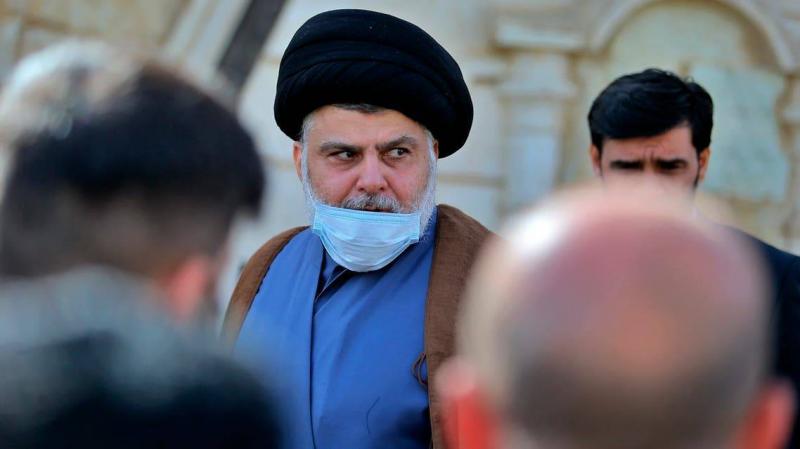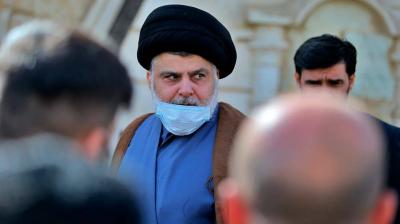After the Federal Court in the country confirmed the results of the parliamentary elections, Iraq awaits the convening of the first parliamentary session to form a government. The eyes of Iraqis are on the Sadrist Movement, led by Muqtada al-Sadr, which secured 73 seats, forming the largest bloc in parliament. This comes despite the Coordination Framework, which includes the Fateh Alliance and former Prime Minister Nouri al-Maliki, claiming to hold that bloc.
The Shiite leader has repeatedly stressed over the past months, including two days ago, that he is committed to forming a national majority government, and some reports indicate that he might exclude al-Maliki's bloc, with whom he does not have a strong relationship, according to "Asharq Al-Awsat." It remains unclear whether al-Sadr will ally with the "Fateh Alliance," representing the political body of the Popular Mobilization Forces and some Iran-aligned militias.
Now, President Barham Salih must invite the new parliament to convene within 15 days, as stipulated by the constitutional provisions. Meanwhile, the country is anticipating the steps that some factions may take, particularly "Asa'ib Ahl al-Haq," which criticized the court's decision, arguing that it contained many flaws.
It is noteworthy that the Federal Court validated the election results on Monday (December 27, 2021), rejecting the appeals filed by Iran-backed factions, thus thwarting their efforts to alter the outcome that showed their loss of dozens of seats. The Fateh Alliance secured only 17 seats, down from 48 in 2018, while the Sadrist Movement maintained its first position with 73 seats, a number greater than any other faction in the fragmented council comprising 329 seats.
A new government must now be formed to succeed Mustafa al-Kadhimi's government, typically done through the largest bloc. However, this process is often complicated, as no single movement in the country can usually monopolize executive power, leading the winner to generally seek to share power with other movements and factions.




